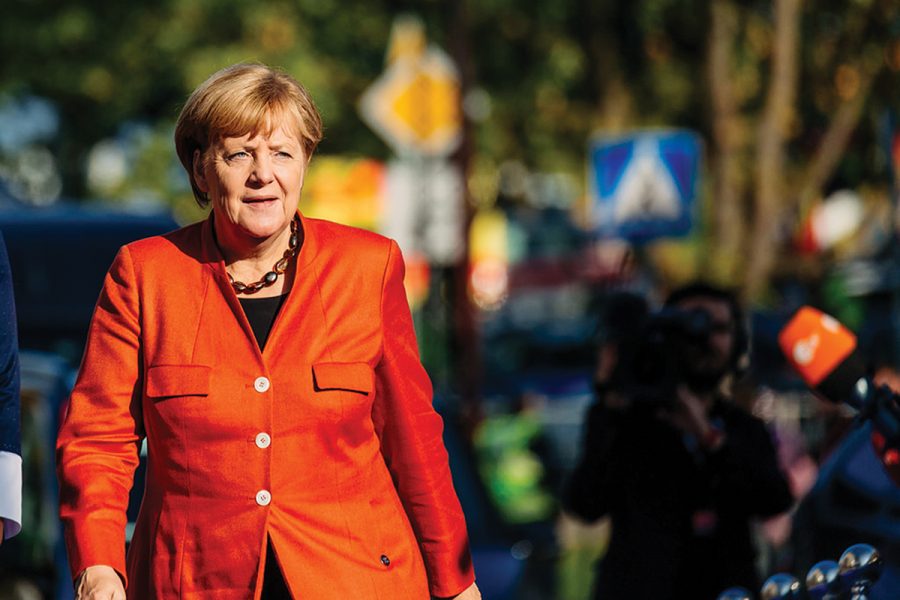Germany’s Merkel plans to steps down
Photo Courtesy of Arno Mikkor
Chancellor of Germany Angela Merkel declared on Monday, Oct. 28, that she will be resigning after her term expires in 2021.
“I have the feeling it is time to open a new chapter,” Merkel told reporters.
Along with her resignation after 13 years of Chancellorship in 2021, Merkel announced that she would step down as chairman of the Christian Democratic Union.
This announcement comes as no surprise during a time when European politics are swinging towards the far-right.
Germany is following this trend with parties such as the far-right Alternative for Germany (AfD) gaining support while Merkel’s Christian Democratic Union (CDU) party is losing its backing. This is evident in the recent German state elections, in which both the CDU party and the Social Democrats lost significant support.
“With the unhealthy economy, the increased amount of job-seeking immigrants was easy to scapegoat,” Early College student Badar Cha said. “This partially caused the shift to right-wing policies and politics.”
According to CNN Policy Analyst Leopold Traugott, Merkel’s resignation will have a significant impact on German politics.
“Merkel was a stable leader in a global politics that’s become increasingly disorderly,” Traugott said. “While Germany needs to look for a new leading figure, allies and opponents abroad will have to prepare for a different, perhaps more difficult partner in Berlin. Germany will become even more inward-looking in the near future, a trend we have seen since last year’s general election already.”
For the far right AfD, Merkel’s departure is good news because they now have significantly less competition in achieving their political goals for the 2021.
“This is a huge loss for Germany. Merkel has 13 years of experience and has used this time to gain trust from many world powers,” said Professor of Political Science George Guo. “When a new leader comes in, they may have trouble getting to the same level of expertise and trust that Merkel has after being in power for so long.”
While Merkel’s resignation and the AfD’s ascent to power represent the shift to right-wing policies in Germany, the shift is a worldwide phenomenon.
“The world in the last couple years has seen a shift to more extreme policies, which can be seen in the U.S., Brazil, and Italy.” Said Guo.
The shift to right wing policies comes as a reaction to a broken economy and the refugee crisis. While Germany’s economy is performing well, they are taking in an influx of refugees, which caused anti-immigrant and anti-Islamic views.
Merkel has been in power since 2005, when she was sworn in as the first female chancellor of Germany. She has since been re-elected three times and is in her fourth term. The fourth re-election saw a significant loss in CDU Party strength in parliament, and her announced resignation in 2021 brings the end to an era of German politics.
“Angela Merkel has the experience that comes with being a politician for almost 20 years,” said sophomore Austin Brooks. “Her successor is going to have big shoes to fill, getting on the same level that Merkel is.”









